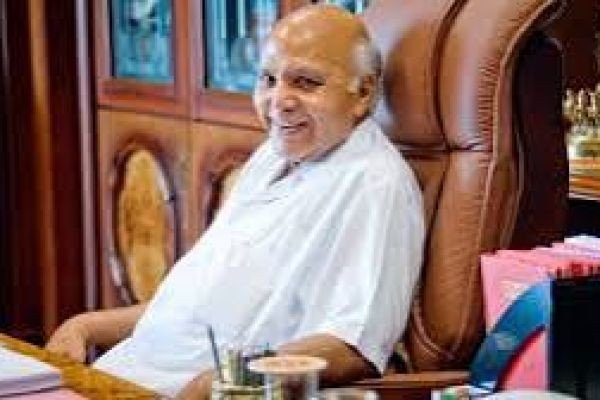Cherukuri Ramoji Rao, Padma Vibhushan, died today at 88. He began as a small-time exporter of Indian goods to the Soviet Union, started and ran a highly successful chit fund business, sold bottled pickle and founded a hospitality group, launched Telugu and English newspapers that ruled over undivided Andhra Pradesh for several decades, made many award-winning films on a low budget, and was one of the most important forces behind the rise and growth of the Telugu Desam Party (TDP). He reached the height of his power and fame before he turned 50 and even months before he died, was brimming with ideas that could give smart young entrepreneurs today a run for their money.
Nearly 30 years ago, speaking to Business Standard, he explained: the secret is to use capital wisely. You have to know how to squeeze every drop from it. He was, of course, talking about the days when banks were state-owned and credit was costly. But this was a principle that was the kernel of his business till the end.
Contrary to general belief, Ramoji Rao was not born to money he married it when his parents arranged his marriage with Rama Devi, his quiet right hand in business and politics. Rao belonged to the Kamma caste, mostly landowners in the fertile irrigated Krishna district of undivided Andhra Pradesh (now Andhra Pradesh). He understood power even though there was little money to back it. He started Margadarsi Chit Funds in 1962 when no one had much idea what a chit fund was. Today, Margadarsis turnover is estimated at Rs 10,000 crore and it is present in Andhra Pradesh, Telangana, Karnataka and Tamil Nadu. Subrata Roy Sahara was to emulate his idea many years later. enthusiastic successors like BandhanBank followed. When it started, it consisted of agents collecting small savings from distant villages in the state in an account with Margadarsi that would advance the money when needed. The account qualified customers to enter a prize lottery. The chit fund business was based on credibility, trust and a certain chutzpah: a quality Ramoji Rao was never short of.
With the capital from Margadarsi and support from his wife and her family Ramoji Rao scouted for business ideas. He launched an advertising agency but by 1970, was already thinking about a Telugu newspaper. Eenadu (Today) was launched in August, 1974. It was a newspaper different from anything Andhra Pradesh had ever seen, dominated as it was by the reverential Andhra Jyothi and Andhra Prabha. Existing newspapers had content that was of little value to readers localisation was largely absent. Eenadu upended all that, becoming irreverent, hyper-local and therefore, the first with the news. Ramoji Rao, always an enthusiastic votary of new technology, localised the production and printing of Eenadu with multiple editions, especially when the facsimile machine entered India and editions could be updated via fax. By 1979, he told interviewers, the circulation was around 180,000. "Two out of every five readers of dailies in the state are Eenadu readers," he said.









